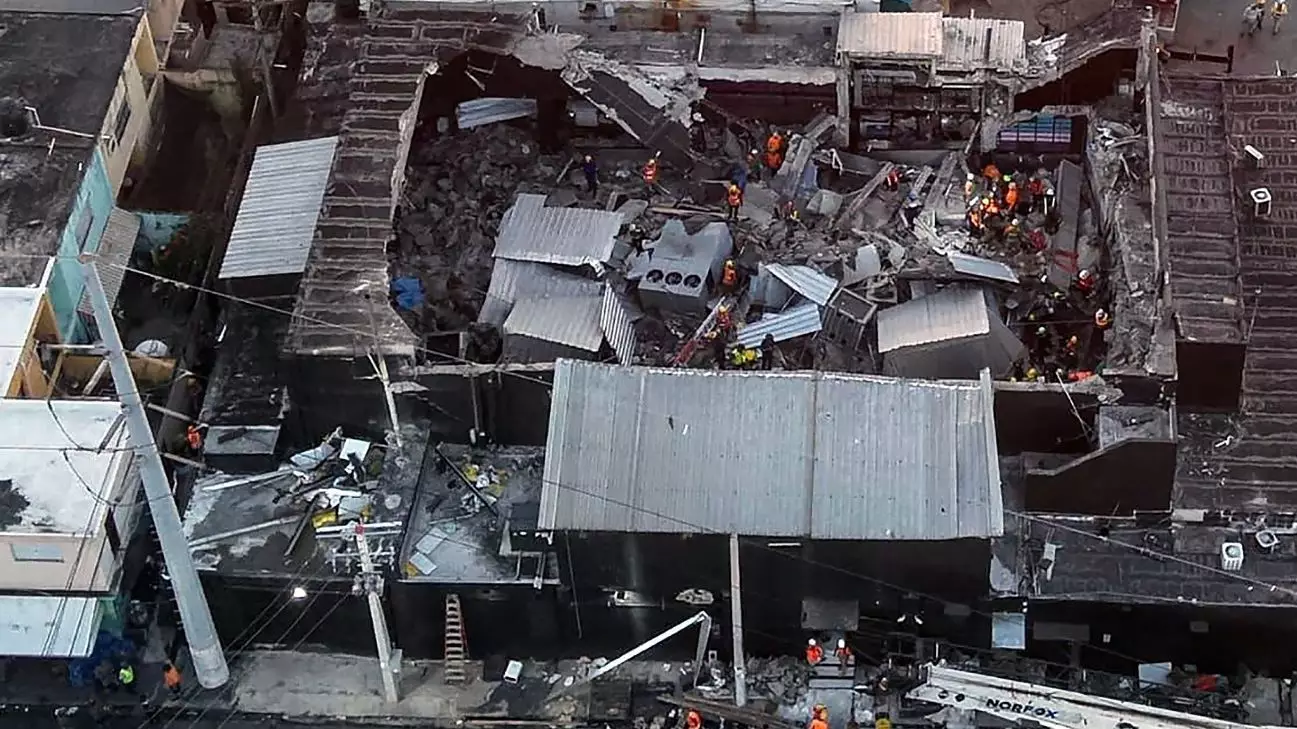A night of celebration turned into a devastating catastrophe as the roof of the Jet Set nightclub in Santo Domingo collapsed, claiming the lives of over 70 individuals, including beloved former Major League Baseball players Octavio Dotel and Tony Blanco. This tragic incident, which took place around 1 a.m. during a lively merengue concert, not only extinguished lives but also shook the heart of a nation where baseball is an integral part of culture and identity.
From the moment the roof fell, chaos ensued as patrons, who had come to enjoy a night filled with music and happiness, found themselves trapped under debris. The Dominican Republic National Police later confirmed that 79 individuals lost their lives—a grievous figure that reverberates through the sports community and beyond. Among the casualties was Nelsy Cruz, the sister of MLB All-Star Nelson Cruz, who was a prominent figure within her community. The emotional toll of this tragedy is immeasurable and extends far beyond the walls of the nightclub, creating a ripple effect of sorrow that has touched the diverse and vibrant populace of the Dominican Republic.
A Community in Mourning
The death of these individuals has left a wound that runs deep within the Dominican community and the broader baseball family. MLB Commissioner Rob Manfred expressed profound sorrow in the wake of the tragedy, highlighting the deep-rooted connection between Dominican players and the sport. His statement, although well-intentioned, reminds us how often words fall short in moments of inexplicable grief.
Similarly, Tony Clark, the executive director of the MLB Players Association, conveyed solidarity with the affected individuals, emphasizing that the union stands firmly with the Dominican community during this heart-wrenching time. Yet, while such sentiments are welcome, they reveal greater systemic issues regarding safety regulations and structural integrity in entertainment venues—possible oversights that demand immediate attention.
Unanswered Questions
The cause of the collapse remains shrouded in mystery, raising critical questions regarding safety standards and regulations governing public spaces. What led to such a catastrophic failure during a time of joyous celebration? Was there a lack of foresight in building codes, or has negligence crept into the way nightclubs prioritize profits over patron safety? The community deserves transparency and accountability, not just hollow condolences after such grave occurrences.
Rescue efforts continued for hours, with firefighters laboring tirelessly to search for remaining survivors and manage the wreckage. While their efforts deserve commendation, one must wonder whether more proactive measures could have prevented this tragedy from unfolding. Should governmental oversight be strengthened to ensure that such places uphold stringent safety measures? The heartache of lost lives pushes this question to the forefront, demanding action and reform.
The Soulful Resonance of Loss
In the days following the collapse, the testimonies of those who loved and knew Dotel and Blanco begin to emerge. Friends and family recount their laughter, the joy they brought into lives, and their immeasurable contributions to baseball—a sport where Dominican talent shines brightly on the world stage. The profound sense of loss is palpable, leaving survivors to contend with their grief while also grappling with the potential loss of a promising future for young athletes, like Tony Blanco Jr., who now grows up without his father.
As the nation mourns, Dominican President Luis Abinader’s involvement and emotional pleas signal a moment of collective reckoning. This tragedy is not just about the loss of life but also serves as a wake-up call for the nation—a call to honor and protect the community in which these athletes thrived and flourished.
One can only hope that, in the aftermath of such a devastating event, concrete steps will be taken to prevent similar tragedies in the future. The pain is raw, and perhaps channeling this sorrow into advocacy for safety and accountability could be a fitting tribute to those who lost their lives that fateful night. Compassion must guide the discourse moving forward, ensuring that no life lost is in vain, and that safety must always trump entertainment or profit.


Leave a Reply